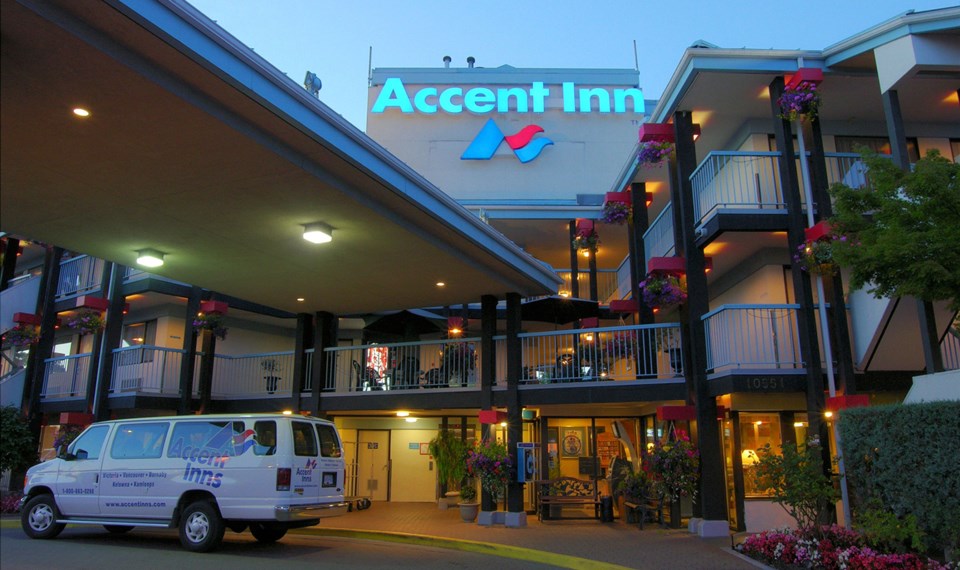Some B.C. hotel owners are opting to close their businesses and lay off employees as the COVID-19 pandemic ravages their revenue and occupancy rates, while others are vowing to stay open as a public service to accommodate essential workers and others who need rooms.
The federal government is paying to book Accent Inns’ 202-room property in Richmond to accommodate travellers who need to be quarantined, Accent Inns’ vice-president of marketing and communications Trina Notman told Business in Vancouver on March 26.
Her B.C.-based hotel chain has four other properties – in Burnaby, Victoria, Kamloops and Kelowna – and Notman said all will stay open during the pandemic despite being less than half full. The chain is charging less than 50 per cent of what it would normally charge guests, as a way to support those who are self-isolating, essential workers and others. It has laid off about half of its 250-person workforce.
A phone call from a nurse in Victoria partly prompted the company’s vow to stay open, Notman said.
That nurse was near tears because all the hotels she was phoning were closed and that needed to book a room, Notman said.
“She said, ‘There’s a real need here because nurses are sleeping in their cars because they don’t want to bring the virus home to their families,” Notman said. “They’re working long days with little time between shifts and they don’t necessarily want to drive all the way home.”
Notman said all of the rooms in the chain’s hotels have doors that open to the outside, and there is no centralized air conditioning that could bring dangerous air into rooms. The result is that the rooms are safer than at some chains, she said. She added that she is open to having the rooms be used as hospital rooms if hospitals need extra space. So far, wings of hotels are earmarked for those who are isolating, while other parts of the hotels are open for the general public.
Converting rooms to be for hospital patients could be “complicated” because equipment might be needed, but that other uses, such as housing essential healthcare workers, are a good fit, Marriott International Inc. CEO Arne Sorenson told CNBC on March 24.
Sorenson said revenue at his hotel company, which has more than 6,500 properties branded Marriott, St. Regis, Ritz Carlton and others and is one of the largest in the world, has seen revenue drop 75 per cent from what he would have expected.
B.C.’s Nat Bosa, who owns Victoria’s closed Fairmont Empress Hotel, believes drops in revenue could be much worse.
He told BIV that he has seen statistics out of China that showed that when that country was gripped with the worst of this crisis, its hotels were recording occupancy in the low single-digit percentages.
“Imagine having a 500-room hotel that has 15 to 20 people inside,” Bosa said. “About 80 per cent of the [B.C.] hotels will close by this weekend.”
Government leaders in Canada have told people to stay home so it makes little sense for him to keep his hotel open, he said.
BIV asked Bosa if he thought that there could be business from people who plan to isolate from their families.
“There isn’t.,” he said. “That’s the whole problem.”
Other large hotels, such as the Fairmont Hotel Vancouver and the Rosewood Hotel Georgia have temporarily closed, although there are some holdouts. The Fairmont Vancouver Waterfront hotel, for example, has staff taking reservations as of this afternoon.
While Bosa is convinced that, eventually, the hotel sector will rebound, he has a bleak outlook for the immediate future.
“This thing here is not going to come back roaring like a lion, as this is not a ‘V,’“ he said to indicate the shape of a brisk and immediate rebound from a bottom.
“I don’t see this as a ‘V’. This will be a real defined ‘U.’ It will drag at the bottom for a while, until people feel safe to start going out of their den again.”



